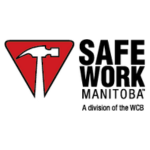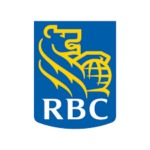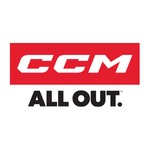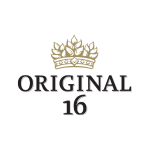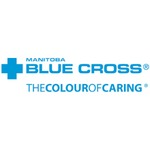Chicago Wolves defenseman Zach Whitecloud may be a rookie, but he carries a long list of responsibilities for the Wolves squad that leads Iowa 2-1 in the best-of-seven Central Division Finals. He and fellow rookie Nic Hague serve as the team’s top pair on the blue line. He quarterbacks the team’s top power-play unit. He takes a regular shift on the penalty kill.
Considering he led the American Hockey League this season with a +39 plus/minus rating, it seems clear Whitecloud thrives on responsibility. But not just on the ice.
He became the first member of the Sioux Valley Dakota Nation to play in the National Hockey League when he made his debut with the Vegas Golden Knights on April 5, 2018, after signing with the team as an undrafted free agent the month before.
It’s a first that’s meaningful to the 22-year-old because of the possibilities it suggests for other First Nations people.
Zach grew up in Brandon, Manitoba, located about two hours west of Winnipeg. Another 20 minutes west of Brandon is the Sioux Valley Dakota Nation Reserve where his father, Tim Whitecloud, grew up. Family members still live there and Zach says they visit frequently to stay in touch with traditions.
Playing sports, particularly ones that require being active and working together as a team, is something that Zach feels is integral for kids. Tim Whitecloud and Zach’s mom, Donna Cullen, put Zach through any sport he wanted to try (he played rugby, football, badminton and tennis, in addition to hockey) and he says being so involved kept him out of trouble.
“I always look to my parents for a lot of guidance,” Zach said. “Early on I learned a lot of right and wrong things from them and that carried on throughout my life and I slowly learned how much they actually taught me growing up between right and wrong.
“It happens at all times. Like, with drugs and alcohol, you’re going to be peer pressured to do some things throughout your life. And bad decisions not relating to those, whatever it may be. School-related – are you going to do your homework or not do your homework? I learned those lessons early on throughout life and the consequences of those things and it carried on throughout my life in high school and college and it served me well.”
And if his parents’ example wasn’t enough, his family served as a billet family for players on the Western Hockey League’s Brandon Wheat Kings. Zach got to witness how decisions off the ice can impact a player’s career – both positively and negatively.
“I was lucky to have two or three really good ones, and a couple bad ones, to see what could happen,” Zach said. “I saw both sides of the spectrum; one is unfortunately back on the reservation and he’s not working a whole lot and he was probably one of the best players to come through the Brandon Wheat Kings organization. He just couldn’t stay away from alcohol and the wrong decisions. I think it was good for me, unfortunately at the expense of him.”
He also saw what happened when players dedicated themselves and set their sights on playing professionally and used it to mold his own attitude towards training. He was drawn to Micheal Ferland and Jordin Tootoo, two aboriginal players who went on to NHL careers by way of the Wheat Kings. Whitecloud knew, however, that it was up to him to put in the work and to set a path for himself.
“Obviously there are people and support systems in place to help you out. But at the end of the day, it’s only me who is going to be able to get it done.”
A HELPING HAND TO NATIVE NATIONS
Zach was put on skates at age 2 thanks to his parents’ love of hockey and it turned into a way he could remain in touch with his friends from the reservation when the team had trouble fielding a full roster. His family helped out off the ice as well, doing whatever they could to ease the time and financial commitment that comes with organized sports.
“Relating to the aboriginal community, a lot of kids and a lot of parents, especially that live on reservations, don’t have the money or can’t afford to put their kids through organized sports,” Zach said. “It’s expensive nowadays, it’s not cheap. At the end of the day it’s still tough for a working family with two parents that have good income to put their kids through travel sports.
“But growing up with those kids and those families, they didn’t have a lot of money to travel. If the tournament was an hour away or two hours away, they wouldn’t have the money to do it so we would always take two, three or four kids in our car and try to get as many people there as we could.”
Zach chose Bemidji State University to continue his education and hockey career, discovering a support system in the large Leech Lake Band and Red Lake Band of Ojibwe communities that surround Bemidji, Minnesota.
“It was good to find out about that community, to kind of know that I had support systems around there if I ever needed it. Obviously it created a chance for a lot of people from the reserves to come out to Bemidji and watch a fellow native kid play every night.”
Zach became involved in Bemidji State’s Native Nations Night, an annual event put on by the university that has since expanded to the school’s basketball program as well. While the event was based around Zach, the only First Nations player on the team at the time, it was also an opportunity for native kids to experience a high-level hockey game. He says financial strain, and being located almost four hours from the nearest NHL markets, are barriers for native families wanting to see a professional game.
“To create that night where they can get free tickets or their parents can get discounted tickets, and I get to interact with everyone after the game and sign some things that they want, it turned out to be a great success every night,” Zach said. “To see the smiles on their faces, there are no words for it.”
While Zach says he doesn’t try to claim he can relate to the struggles faced by the native kids he meets, he knows he can play a role by being a positive mentor and sharing his story. When he goes home to Manitoba, the self-described “people person” makes trips to local schools and community events so that he can talk to as many people as possible, whether the conversation leads to hockey or to problems individuals in the community are facing.
“I’ve been blessed with a life that I can go out and do what I want,” Zach said. “I can go out and play hockey every day, I can do what I love and I don’t take that for granted.
“At the end of the day, I never lived that life. I’m not going to try to resonate with them that I know what they’re going through, whether it’s financial issues, drugs and alcohol, school, having issues with friends and relationships, things like that.
“But I do know about creating a path for yourself and creating something out of nothing. The one thing I can do is provide a solid foundation that they can look to and think if this guy can create something out of a very small nothing, then there’s always that hope.”
















